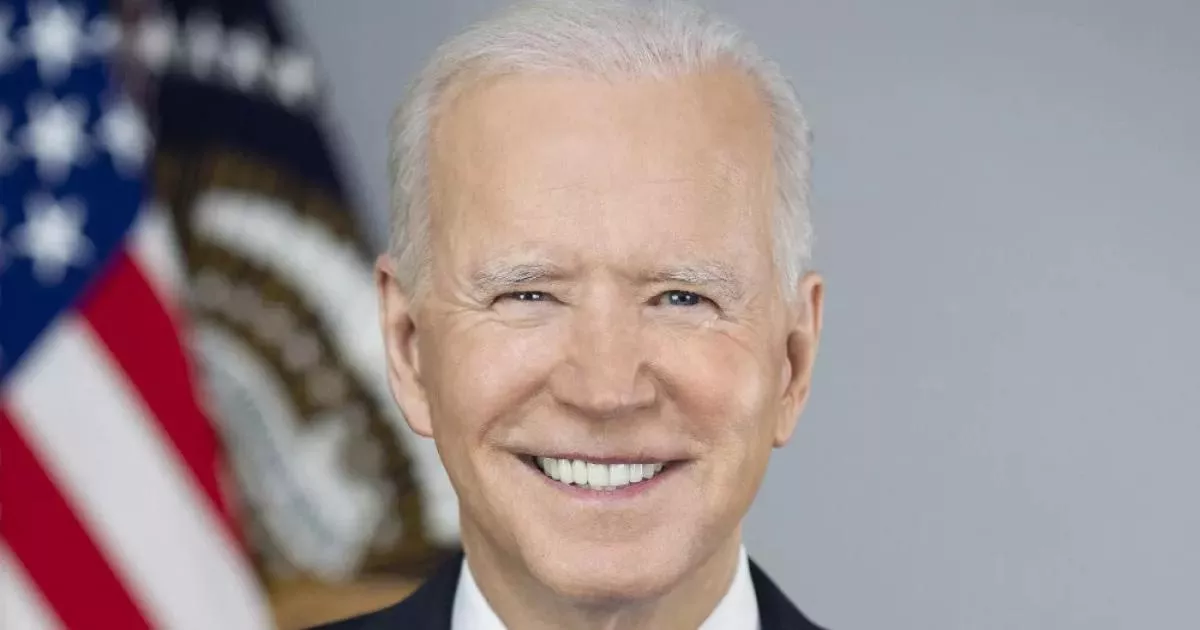Discover the career path of Joe Biden, from the first major opportunity to industry-changing achievements.
Joe Biden, a member of the Democratic Party, served as the 46th U.S. president (2021-2025). Before his presidency, he was the 47th Vice President under Barack Obama (2009-2017) and represented Delaware in the U.S. Senate (1973-2009).
1968: Clerked at Law Firm
In 1968, Biden clerked at a law firm headed by William Prickett and initially identified as a Republican.
1968: First time since 1968 that an eligible incumbent had declined to run for reelection.
In 2024, Biden's withdrawal from the presidential race marked the first time since 1968 that an eligible incumbent had declined to run for reelection.
1969: Practiced Law
In 1969, Biden resumed practicing law as a public defender in Wilmington, Delaware, before joining a firm headed by Sid Balick and starting his own firm, Biden and Walsh.
1969: Admitted to Delaware Bar
In 1969, Biden was admitted to the Delaware bar.
1970: Ran for New Castle County Council
In 1970, Biden ran for the fourth district seat on the New Castle County Council.
January 5, 1971: Took Office on New Castle County Council
On January 5, 1971, Biden took office on the New Castle County Council.
1972: Elected to U.S. Senate
In 1972, Biden was elected to the U.S. Senate.
1972: Elected as U.S. Senator from Delaware
In 1972, Joe Biden was elected as the junior U.S. Senator from Delaware, defeating Republican incumbent J. Caleb Boggs.
January 1, 1973: Left Office on New Castle County Council
On January 1, 1973, Biden's service on the New Castle County Council ended.
1973: Elected to the Senate
In 1973, Joe Biden began serving as a United States Senator representing Delaware.
1974: Described Political Stance
In 1974, Joe Biden described himself as liberal on civil rights and liberties, senior citizens' concerns, and healthcare, but conservative on other issues.
1976: Supported Measure Forbidding Federal Funds for Busing
In 1976, Biden supported a measure forbidding the use of federal funds for transporting students beyond the school closest to them.
1976: Endorsed Jimmy Carter
In 1976, Joe Biden was the first U.S. senator to endorse Governor Jimmy Carter for president in the Democratic primary.
1976: Used Passage by Hubert Humphrey
Two years earlier he had used a 1976 passage by Hubert Humphrey.
1977: Co-sponsored Amendment
In 1977, Biden co-sponsored an amendment closing loopholes in the measure forbidding federal funds for transporting students beyond the school closest to them.
1978: Re-elected to the U.S. Senate
In 1978, Joe Biden was re-elected to the U.S. Senate.
1978: Amendment Signed into Law
In 1978, President Carter signed into law the 1977 amendment co-sponsored by Biden, closing loopholes in the measure forbidding the use of federal funds for busing.
1979: SALT II Treaty
After Congress failed to ratify the SALT II Treaty signed in 1979 by Soviet general secretary Leonid Brezhnev and President Carter, Biden met with Soviet foreign minister Andrei Gromyko and secured changes that addressed the Senate Foreign Relations Committee's objections.
1980: Biden is the first incumbent president to lose a contest while appearing on the ballot since Jimmy Carter in 1980
Biden lost the American Samoa contest to venture capitalist Jason Palmer, becoming the first incumbent president to lose a contest while appearing on the ballot since Jimmy Carter in 1980.
1981: Ranking Minority Member of Senate Judiciary Committee
In 1981, Joe Biden became a ranking minority member of the Senate Judiciary Committee.
1984: Democratic Floor Manager for Comprehensive Crime Control Act
In 1984, Joe Biden served as the Democratic floor manager for the successful passage of the Comprehensive Crime Control Act. Supporters praised him for modifying some of the law's worst provisions, making it his most important legislative accomplishment at that time.
1984: Re-elected to the U.S. Senate
In 1984, Joe Biden was re-elected to the U.S. Senate.
1984: Objected to Strategic Defense Initiative
In a congressional hearing in 1984, Joe Biden objected to the Strategic Defense Initiative plan to construct autonomous systems of ICBM defense.
June 9, 1987: Announcement of Presidential Candidacy
On June 9, 1987, Joe Biden declared his candidacy for the 1988 Democratic presidential nomination.
September 23, 1987: Withdrawal from Presidential Candidacy
On September 23, 1987, Joe Biden withdrew his candidacy for the 1988 presidential election.
1987: Chairman of the Senate Committee on the Judiciary
In 1987, Joe Biden became the chairman of the Senate Committee on the Judiciary.
1988: Unsuccessful Presidential Nomination Bid
In 1988, Biden ran unsuccessfully for the Democratic presidential nomination.
1988: Robert Bork Nomination Hearings
In 1988, as chair, Joe Biden presided over the contentious U.S. Supreme Court confirmation hearings of Robert Bork. Biden reversed his previous approval of a hypothetical Bork nomination. Bork's nomination was ultimately rejected.
1990: Re-elected to the U.S. Senate
In 1990, Joe Biden was re-elected to the U.S. Senate.
1991: Clarence Thomas Nomination Hearings
During Clarence Thomas's nomination hearings in 1991, Joe Biden's questions were convoluted. After the hearing closed, Anita Hill accused Thomas of making unwelcome sexual comments. Biden did not permit testimony from other witnesses. The full Senate confirmed Thomas, with Biden opposed.
1991: Began Teaching at Widener University
In 1991, Joe Biden began co-teaching a seminar on constitutional law at Widener University School of Law as an adjunct professor.
1991: Opposition to Authorization for Gulf War
In 1991, Joe Biden voted against authorization for the Gulf War.
April 1993: Meeting with Slobodan Milošević
In April 1993, Joe Biden had a tense three-hour meeting with Serbian leader Slobodan Milošević.
1993: Vote on Homosexuality in the Military
In 1993, Joe Biden voted for a provision that deemed homosexuality incompatible with military life, effectively banning gay people from serving in the armed forces.
1994: Passage of Violent Crime Control and Law Enforcement Act
In 1994, Joe Biden helped pass the Violent Crime Control and Law Enforcement Act, which included a ban on assault weapons, and the Violence Against Women Act, which he called his most significant legislation. The 1994 crime law was unpopular among progressives and criticized for resulting in mass incarceration, and Biden later expressed regret for passing the bill.
1995: Ranking Minority Member of Senate Judiciary Committee
In 1995, Joe Biden became a ranking minority member of the Senate Judiciary Committee again.
1996: Vote for the Defense of Marriage Act
In 1996, Joe Biden voted for the Defense of Marriage Act, which prohibited the federal government from recognizing same-sex marriages, barring people in such marriages from equal protection under federal law and allowing states to do the same.
1996: Re-elected to the U.S. Senate
In 1996, Joe Biden was re-elected to the U.S. Senate.
1997: Ranking Minority Member of Senate Foreign Relations Committee
In 1997, Joe Biden became the ranking minority member of the Senate Foreign Relations Committee.
1997: End of Term as Ranking Minority Member
In 1997, Joe Biden's term as ranking minority member of the Senate Judiciary Committee ended.
1999: Support for NATO bombing of Yugoslavia
In 1999, during the Kosovo War, Joe Biden supported the NATO bombing of Yugoslavia. He and Senator John McCain co-sponsored the McCain-Biden Kosovo Resolution.
2000: Bankruptcy Legislation Vetoed
In 2000, Bill Clinton vetoed bankruptcy legislation sought by credit card issuers, such as MBNA. Joe Biden had sponsored the legislation.
2000: William Roth Defeated
In 2000, William Roth was defeated, ending his time as Joe Biden's senior senator.
June 2001: Chair of Senate Foreign Relations Committee
In June 2001, Joe Biden became chair of the Senate Foreign Relations Committee.
October 2002: Vote in Favor of the Authorization for Use of Military Force Against Iraq
In October 2002, Joe Biden, then head of the Senate Foreign Relations Committee, voted in favor of the Authorization for Use of Military Force Against Iraq, approving the U.S. invasion of Iraq.
2002: Re-elected to the U.S. Senate
In 2002, Joe Biden was re-elected to the U.S. Senate.
2003: End of First Term as Chair of Senate Foreign Relations Committee
In 2003, Joe Biden's first term as chair of the Senate Foreign Relations Committee ended.
2005: Called Vote a 'Mistake'
By 2005, Joe Biden called his 2002 vote in favor of the Authorization for Use of Military Force Against Iraq a "mistake."
2005: Passage of Bankruptcy Abuse Prevention and Consumer Protection Act
In 2005, the Bankruptcy Abuse Prevention and Consumer Protection Act passed, with Joe Biden being one of only 18 Democrats to vote for it. The bill had been vetoed in 2000 by Bill Clinton.
2006: Biden-Gelb Iraqi Federalization Plan
The Biden-Gelb Iraqi federalization plan of 2006 received renewed attention during the ISIL insurgency in Iraq during 2014.
September 2007: Senate Passes Resolution Endorsing Iraq Division Plan
In September 2007, a non-binding resolution endorsing Joe Biden's plan to divide Iraq into a loose federation of three ethnic states passed the Senate, but the idea failed to gain traction.
2007: Biden and Obama Got to Know Each Other
During 2007, Barack Obama and Joe Biden got to know each other. Obama appreciated Biden's campaign style and appeal to working-class voters, and Biden said he became convinced Obama was "the real deal".
2007: Chair of Senate Foreign Relations Committee Again
In 2007, Joe Biden became chair of the Senate Foreign Relations Committee for a second time.
January 3, 2008: Withdrawal from 2008 Presidential Race
On January 3, 2008, Joe Biden placed fifth in the Iowa caucuses and withdrew from the 2008 presidential race that evening.
August 2008: Selection as Obama's Running Mate
In August 2008, Barack Obama and Joe Biden met in secret to discuss the possibility of a place for Biden in the Obama administration, and developed a strong personal rapport. On August 22, Obama announced that Biden would be his running mate.
September 2008: Vote on Emergency Economic Stabilization Act
As the 2008 financial crisis reached a peak in September 2008, Joe Biden voted for the $700 billion Emergency Economic Stabilization Act of 2008, which passed in the Senate.
2008: Increased Stature in the Political World
Despite its lack of success, Joe Biden's 2008 campaign raised his stature in the political world and in particular, it changed the relationship between Biden and Obama.
2008: Selected as Obama's Running Mate
In 2008, Barack Obama chose Joe Biden as his running mate for the presidential election.
2008: Ended Teaching at Widener University
In 2008, Joe Biden concluded his time co-teaching a seminar on constitutional law at Widener University School of Law as an adjunct professor.
2008: Re-elected to the U.S. Senate
In 2008, Joe Biden was re-elected to the U.S. Senate.
January 2009: Resignation from the Senate
Having been reelected to the Senate as well as the vice presidency, Joe Biden made a point of not resigning from the Senate before he was sworn in for his seventh term in January 2009. He resigned from the Senate on January 15.
January 20, 2009: Biden Sworn in as Vice President
On January 20, 2009, Joe Biden was sworn in as Vice President of the United States, becoming the first vice president from Delaware and the first Roman Catholic vice president. He also stated his intention to eliminate some roles assumed by Dick Cheney.
April 2009: Biden's Swine Flu Remark and Retraction
In April 2009, Joe Biden's off-message response to a question during the beginning of the swine flu outbreak led to a swift retraction by the White House, reviving his reputation for gaffes.
May 2009: Biden Visits Kosovo
In May 2009, Joe Biden visited Kosovo and affirmed the U.S. position that its "independence is irreversible".
July 2009: Biden Acknowledges Economy Misread
In July 2009, facing rising unemployment, Joe Biden acknowledged that the Obama administration had "misread how bad the economy was" despite overseeing infrastructure spending from the stimulus package.
2009: Became Vice President
In 2009, Joe Biden became the 47th Vice President of the United States under President Barack Obama.
2009: End of Second Term as Chair of Senate Foreign Relations Committee
In 2009, Joe Biden's second term as chair of the Senate Foreign Relations Committee ended.
March 23, 2010: Biden's "Big Fucking Deal" Remark
On March 23, 2010, a hot mic picked up Joe Biden telling Obama that his signing the Patient Protection and Affordable Care Act was "a big fucking deal."
October 2010: Obama Asks Biden to Remain as Running Mate
In October 2010, Joe Biden stated that Barack Obama had requested him to continue as his running mate for the 2012 presidential election.
December 2010: Biden's Role in Tax Package Compromise
In December 2010, Joe Biden's advocacy for a middle ground, followed by his negotiations with Senate minority leader Mitch McConnell, were instrumental in producing the Obama administration's compromise tax package. The package passed as the Tax Relief, Unemployment Insurance Reauthorization, and Job Creation Act of 2010.
February 2011: Biden Completes Stimulus Oversight Role
In February 2011, Joe Biden completed his role overseeing infrastructure spending from the Obama stimulus package, reporting that fraud incidents with stimulus monies had been less than one percent.
May 2011: Reports Suggest Biden Opposed Bin Laden Mission
Some reports suggest that in May 2011, Joe Biden opposed proceeding with the U.S. mission to kill Osama bin Laden, fearing failure could hurt Obama's reelection.
2011: Biden Oversees Iraq Policy
In 2011, Joe Biden oversaw Iraq policy, becoming the Obama administration's point man in delivering messages to Iraqi leadership before the exit of U.S. troops.
2011: Daley's Secret Polling on Replacing Biden
In late 2011, White House Chief of Staff William M. Daley conducted secret polling and focus group research exploring the possibility of replacing Joe Biden with Hillary Clinton as Obama's running mate, but the idea was eventually dropped.
May 2012: Biden's statement on Same-Sex Marriage
In May 2012, Joe Biden publicly stated that he was "absolutely comfortable" with same-sex marriage, contrasting with Obama's "evolving" position. This statement, made without administration consent, spurred Obama to announce his support for same-sex marriage within days.
August 2012: Biden's 'Back in Chains' Remark
In August 2012, during the reelection campaign, Joe Biden made a controversial remark to a mixed-race audience, stating that Republican proposals to relax Wall Street regulations would "put y'all back in chains."
December 2012: Biden to Head Gun Violence Task Force
In December 2012, President Obama appointed Joe Biden to head the Gun Violence Task Force to address the causes of school shootings following the Sandy Hook Elementary School shooting.
2012: Biden supports same-sex marriage
Biden has supported same-sex marriage since 2012.
2012: Biden Makes Case for Obama's Reelection
In 2012, Joe Biden campaigned for Obama's reelection with the line, "Osama bin Laden is dead and General Motors is alive."
2012: Obama-Biden ticket for 2012 Presidential Election
In 2012, Joe Biden ran as Vice President alongside Barack Obama in the presidential election.
January 20, 2013: Biden Inaugurated for Second Term
On January 20, 2013, Joe Biden was inaugurated to a second term as Vice President at a small ceremony at his official residence, with Justice Sonia Sotomayor presiding.
October 2013: Biden Cut Out of Government Shutdown Talks
In October 2013, Joe Biden played little part in discussions leading to the passage of the Continuing Appropriations Act, 2014, resolving the federal government shutdown. He was cut out of direct talks due to concerns about previous negotiations.
2013: Violence Against Women Act Reauthorization
In 2013, Joe Biden's Violence Against Women Act was reauthorized again.
2013: Biden Negotiates American Taxpayer Relief Act
In the final days before the United States fell off the "fiscal cliff" in 2012, Joe Biden's relationship with Mitch McConnell led to the American Taxpayer Relief Act of 2012 being passed at the start of 2013.
January 2014: White House Task Force to Protect Students from Sexual Assault Begun
In January 2014, the White House Task Force to Protect Students from Sexual Assault was started with Joe Biden and Valerie Jarrett as co-chairs.
2014: ISIL Insurgency in Iraq Intensifies
In 2014, as the ISIL insurgency in Iraq intensified, renewed attention was paid to the Biden-Gelb Iraqi federalization plan of 2006.
2014: Continuing Appropriations Act Passage
In October 2013 the Continuing Appropriations Act, 2014, was passed which resolved the federal government shutdown of 2013 and the debt-ceiling crisis of 2013.
2015: Biden Considers a Presidential Run
In mid-2015, Joe Biden was encouraged to consider entering the 2016 presidential race, especially given Hillary Clinton's declining favorability. He ultimately announced in October that he would not run, particularly due to the recent death of his son Beau.
2016: Biden Mentioned as Likely Presidential Candidate
Between 2016 and 2019, media outlets often mentioned Joe Biden as a likely candidate for president in 2020.
2016: Biden Considered Presidential Nomination
During his second term and into 2016, it was often said that Joe Biden was preparing for a bid for the 2016 Democratic presidential nomination, but he eventually decided not to run.
2016: Biden Introduces Lady Gaga at Academy Awards
In 2016, Joe Biden introduced Lady Gaga at the 88th Academy Awards and spoke about sexual violence, receiving a standing ovation.
January 20, 2017: Biden Leaves Office
On January 20, 2017, Joe Biden left office as Vice President of the United States, succeeded by Mike Pence.
2017: Biden on partially reversing the corporate tax cuts
Biden proposed partially reversing the corporate tax cuts of the Tax Cuts and Jobs Act of 2017.
2017: Biden signs with Creative Artists Agency
Biden signed with talent agency Creative Artists Agency (CAA) from 2017 to 2020.
2017: End of Vice Presidency
In 2017, Joe Biden's term as Vice President of the United States concluded.
January 2018: Time for Biden PAC Formed
In January 2018, a political action committee known as Time for Biden was formed.
2018: The Senate went Republican for the first time since 2018
In the 2024 general election, the Senate went Republican for the first time since 2018.
April 25, 2019: Biden Launches 2020 Presidential Campaign
On April 25, 2019, Joe Biden launched his campaign for the 2020 presidential election, citing concerns about the Trump administration and a "sense of duty."
September 2019: Trump Pressures Ukraine to Investigate Biden
In September 2019, it was reported that Donald Trump pressured Ukrainian president Volodymyr Zelenskyy to investigate alleged wrongdoing by Joe Biden and his son Hunter Biden, leading to a political scandal and Trump's impeachment.
2019: Biden Leaves Penn Biden Center
After leaving the Vice Presidency, Joe Biden became an honorary professor at the University of Pennsylvania, developing the Penn Biden Center for Diplomacy and Global Engagement and remained in that position until 2019.
2019: Biden supported Roe v. Wade and repealing the Hyde Amendment
In 2019, Biden said he supported Roe v. Wade and repealing the Hyde Amendment.
February 2020: US-Taliban Agreement
In February 2020, under the provisions of the US-Taliban agreement, American forces had begun withdrawing from Afghanistan, setting a deadline of May 1, 2021.
2020: Joe Biden likely candidate for president.
Between 2016 and 2019, media outlets often mentioned Joe Biden as a likely candidate for president in 2020.
2020: Biden signs with Creative Artists Agency
Biden signed with talent agency Creative Artists Agency (CAA) from 2017 to 2020.
2020: Biden reuses "a bunch of malarkey"
During his 2020 presidential campaign, Joe Biden reused the phrase "a bunch of malarkey," which he had popularized during the 2012 vice-presidential debate.
2020: Experts Regard Biden's Victory Over Trump as Helping to Protect Political Norms
Experts polled generally regarded Biden's signature accomplishment as his victory over Trump in the 2020 election, which was perceived as helping to protect and restore political and institutional norms in U.S. government.
2020: Biden ran on decriminalizing cannabis
In 2020, Biden ran on decriminalizing cannabis, after advocating harsher penalties for drug use as a senator.
2020: Won the Presidential Election
In 2020, Joe Biden and Kamala Harris defeated Donald Trump and Mike Pence in the presidential election.
February 2021: Biden's Approval Rating Among Democrats at 98%
In February 2021, Biden had a 98% approval rating from Democrats, according to Gallup, Inc.
February 2021: Ending Support for Saudi-Led Campaign in Yemen
In February 2021, the Biden administration declared an end to U.S. support for the Saudi-led bombing campaign in Yemen and reversed the designation of Yemen's Houthis as terrorists.
June 2021: Biden's First Trip Abroad as President
In June 2021, President Biden made his first international trip, visiting Belgium, Switzerland, and the United Kingdom. During the trip, he attended a G7 summit, a NATO summit, and an EU summit, and also held one-on-one discussions with Russian President Vladimir Putin.
September 2021: Announcement of AUKUS Security Pact
In September 2021, the Biden administration announced AUKUS, a security pact between Australia, the United Kingdom, and the United States, to ensure "peace and stability in the Indo-Pacific".
2021: Biden officially recognizes the Armenian genocide
In 2021, Biden officially recognized the Armenian genocide, becoming the first U.S. president to do so.
2021: Became President of the United States
In 2021, Joe Biden assumed office as the 46th President of the United States.
February 2022: Russian Invasion of Ukraine and U.S. Response
In February 2022, after weeks of warnings, the Russian Armed Forces, under President Vladimir Putin, invaded Ukraine. In response, President Biden imposed severe sanctions on Russia and authorized over $8 billion in weapons shipments to Ukraine.
February 2022: Counterterrorism Raid in Syria
In early February 2022, President Biden ordered a counterterrorism raid in northern Syria, which resulted in the death of Abu Ibrahim al-Hashimi al-Qurashi, the second leader of the Islamic State.
November 2022: Discovery of Classified Documents at Penn Biden Center
In November 2022, President Biden's attorneys discovered classified documents from his vice presidency in a "locked closet" at the Penn Biden Center. The documents were reported to the U.S. National Archives and recovered the next day.
December 2022: No TikTok on Government Devices Act
In December 2022, Biden signed the No TikTok on Government Devices Act, prohibiting the use of TikTok on devices owned by the federal government.
2022: Congress Approves Aid to Ukraine
In 2022, Congress approved approximately $113 billion in aid to Ukraine in response to the Russian invasion.
2022: Signed Inflation Reduction Act
In 2022, President Biden signed into law the Inflation Reduction Act, which incorporated aspects of the proposed Build Back Better Act.
2022: Bill codifying Roe protections passed the House
In 2022, a bill codifying the protections of Roe v. Wade into federal law passed the House but was unable to clear the Senate filibuster.
January 11, 2023: House Investigative Committee into Hunter Biden's Business Activities
On January 11, 2023, the House of Representatives launched an investigative committee into the foreign business activities of President Biden's son, Hunter, and brother, James. The committee also investigated alleged corruption related to the Hunter Biden laptop controversy.
February 4, 2023: Shooting Down of Chinese Surveillance Balloon
On February 4, 2023, President Biden ordered the United States Air Force to shoot down a suspected Chinese surveillance balloon off the coast of South Carolina, leading to further damage in U.S.-China relations.
April 25, 2023: Biden confirms reelection run in 2024
On April 25, 2023, Biden officially announced his candidacy for reelection as president in the 2024 election, with Kamala Harris as his running mate. A Gallup poll on the same day showed his approval rating at 37 percent, with the economy being a major concern for most surveyed.
October 2023: Domestic oil production reached a record high
Despite Biden's clean energy policies and congressional Republicans characterizing them as a "War on American Energy", domestic oil production reached a record high in October 2023.
October 2023: Hamas Attack on Israel and US Response
In October 2023, Hamas launched a surprise attack on Israel, leading to intensified conflict. President Biden affirmed support for Israel, condemned Hamas, deployed aircraft carriers to the region, and requested $14 billion in aid to Israel. He also pressured Israel to address the humanitarian crisis in Gaza and supported "humanitarian pauses".
October 2023: Biden Administration Requests Additional Aid for Ukraine
In October 2023, the Biden administration requested an additional $61.4 billion in aid for Ukraine for the coming year. The request faced delays in Congress.
December 13, 2023: House Vote to Formalize Impeachment Inquiry
On December 13, 2023, the House of Representatives voted 221–212 to formalize an impeachment inquiry into President Biden.
December 2023: No Evidence of Wrongdoing by Biden
As of December 2023, congressional investigations, including by the House Oversight committee, have discovered no evidence of wrongdoing by President Biden.
2023: Biden on Democrats who could beat Trump
In 2023, Biden responded to a question about other Democrats who could defeat Donald Trump by saying, "Probably 50 of them".
February 8, 2024: No Charges Filed in Classified Documents Investigation
On February 8, 2024, Special Counsel Robert K. Hur announced that no charges would be brought against President Biden regarding the investigation into classified documents found at his home and office.
February 29, 2024: Killing of Palestinian Civilians Receiving Food Aid
Following the killing of Palestinian civilians receiving food aid on February 29, 2024, President Biden acknowledged that the current level of aid flowing into Gaza was insufficient.
March 7, 2024: Swedish Ascension into NATO
President Biden led diplomatic talks resulting in formal Swedish ascension into NATO on March 7, 2024.
March 2024: Public Disapproval of Israeli Conduct
Despite President Biden's support for Israel, a March 2024 Gallup poll indicated that a strong majority of Americans disapproved of Israeli conduct during the war.
April 2024: Gaza War Protests on University Campuses
Beginning in April 2024, widespread protests emerged on university campuses, denouncing President Biden's stance on the Gaza war.
April 2024: Protecting Americans from Foreign Adversary Controlled Applications Act
In April 2024, President Biden signed the Protecting Americans from Foreign Adversary Controlled Applications Act, potentially banning social networking services controlled by foreign adversaries, particularly ByteDance Ltd., the parent company of TikTok.
April 2024: Additional Aid to Ukraine Approved
In April 2024, an additional $61 billion in aid to Ukraine was added after delays in passage by the House of Representatives.
May 2024: Limited Use of Weapons Against Russian Targets
In May 2024, Biden granted Ukraine permission to use U.S.-supplied weapons against Russian military targets in the vicinity of Kharkiv for "counter-fire" purposes.
May 2024: Increased Tariffs on Chinese Imports
In May 2024, the Biden administration doubled tariffs on solar cells and more than tripled tariffs on lithium-ion electric vehicle batteries imported from China. Tariffs were also raised on steel, aluminum, and medical materials.
May 31, 2024: Biden's Support for Israeli Ceasefire Proposal
On May 31, 2024, President Biden announced his support for an Israeli ceasefire proposal in the Gaza conflict, stating that Hamas was "no longer capable" of a large-scale attack. Despite international support, the Netanyahu administration's conditions for a ceasefire remained unmet.
June 2024: Public concern about Biden's mental acuity
In June 2024, the media widely covered public concern regarding Biden's mental acuity following a perceived weak performance in a presidential debate. After the 2024 election, Biden suggested that he might be too old to serve a second term, despite initially stating he was fit for two terms.
June 27, 2024: First presidential debate between Biden and Trump
On June 27, 2024, the first presidential debate was held between Biden and Trump. Biden's performance was widely criticized, with commentators noting his meandering answers. Polling indicated that most viewers believed Trump won the debate, raising questions about Biden's health and age and leading to calls for him to withdraw from the race.
August 6, 2024: Harris confirmed as Democratic presidential nominee
On August 6, 2024, Kamala Harris was confirmed as the Democratic presidential nominee, after Biden withdrew his candidacy on July 21 and endorsed Harris as his successor. This was the first time an eligible incumbent had declined to run for reelection since 1968.
August 2024: US Aid to Afghanistan
As of August 2024, the U.S. remained the biggest aid donor to Afghanistan, spending at least $20.7 billion post-withdrawal, which has helped support the Taliban government and stabilize Afghanistan's economy.
August 2024: 2024 Ankara Prisoner Exchange
In August 2024, Biden negotiated and oversaw the 2024 Ankara prisoner exchange, which resulted in the release of 26 people, including journalist Evan Gershkovich and former Marine Paul Whelan. It was the largest prisoner exchange since the end of the Cold War.
September 25, 2024: House Resolution Condemning Afghanistan Withdrawal
On September 25, 2024, the United States House of Representatives passed a resolution condemning the Biden administration for the U.S. withdrawal from Afghanistan, with ten Democrats and all Republicans voting in favor.
November 2024: Ceasefire Agreement in Israel-Hezbollah Conflict
In November 2024, the Biden administration announced that it had helped broker a ceasefire agreement in the Israel-Hezbollah conflict.
2024: Biden promoted higher economic growth and recovery during his campaign
During his campaign for the 2024 election, Biden promoted higher economic growth and recovery, using "finish the job" as a political rallying cry.
2024: Biden's campaign in the 2024 Democratic presidential primaries
In the 2024 Democratic presidential primaries, U.S. Representative Dean Phillips ran against Biden, campaigning as a younger alternative. Biden won the New Hampshire primary with 63.8% as a write-in candidate and won South Carolina with 96.2% of the vote. Biden received 89.3% of the vote in Nevada and 81.1% of the vote in Michigan. On Super Tuesday, March 5, 2024, he won 15 of 16 primaries. On March 6, Phillips suspended his campaign and endorsed Biden. On March 12, Biden secured the Democratic nomination.
2024: Trump defeats Harris in the general election
In the 2024 general election, Trump defeated Harris. Trump won the popular vote over Harris by 49.8% to 48.3%. In a nationally televised speech after the election, Biden congratulated Trump and promised a peaceful and orderly transition of power.
January 2025: Biden claims he could have defeated Trump
In January 2025, Biden claimed he could have defeated Trump had he not been persuaded to withdraw from the election. Trump defeated Harris in the general election in 2024. A YouGov poll conducted on November 6–7, 2024, found that if Biden had been the Democratic nominee, Trump would have won the popular vote by 49% to 42%.
January 20, 2025: Biden's term ends; Library Fundraising
Biden's presidential term ended on January 20, 2025. Afterwards, he designated Anthony Bernal and Annie Tomasini to raise funds for the Joseph R. Biden Jr. Presidential Library.
2025: End of Presidential Term
In 2025, Joe Biden's term as the 46th President of the United States concluded.
2035: Biden wants to achieve a carbon-free power sector in the U.S.
Biden wants to achieve a carbon-free power sector in the U.S. by 2035 and stop emissions completely by 2050.
2050: Biden wants to stop emissions completely
Biden wants to achieve a carbon-free power sector in the U.S. by 2035 and stop emissions completely by 2050.
Mentioned in this timeline

Lady Gaga born Stefani Joanne Angelina Germanotta is a highly...
TikTok also known as Douyin in China is a social...

Donald John Trump is an American politician media personality and...

Bernie Sanders is a prominent American politician currently serving as...

Vladimir Vladimirovich Putin is a Russian politician and former intelligence...
Home Box Office HBO is an American pay television service...
Trending

8 months ago Stanley Tucci faces wine tourism criticism; 'Tucci in Italy' gets renewed; trattoria impact.

3 months ago Alcaraz Rallies to Victory Against Fritz, Closing in on No. 1 Ranking

2 months ago Josh Hart shines with increased workload, making a case to stay in lineup.
4 months ago Daytona 500 Date Announced for 2027, Creates Fan Uproar Over Scheduling Conflicts

Micah Katt Williams is a well-known American stand-up comedian and actor He is recognized for his roles in various films...
11 months ago Latvia Imposes Entry Ban on Citizens from Russia and Belarus Amid Tensions
Popular

Kid Rock born Robert James Ritchie is an American musician...
The Winter Olympic Games a major international multi-sport event held...

XXXTentacion born Jahseh Dwayne Ricardo Onfroy was a controversial yet...

Barack Obama the th U S President - was the...

Michael Jordan often known as MJ is a businessman and...

Michael Joseph Jackson the King of Pop was a highly...
